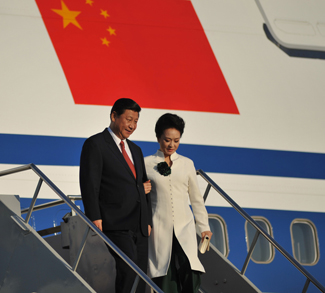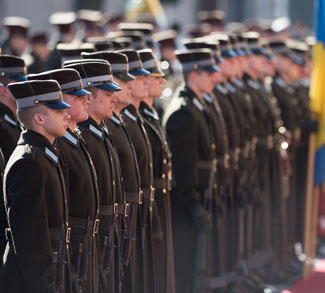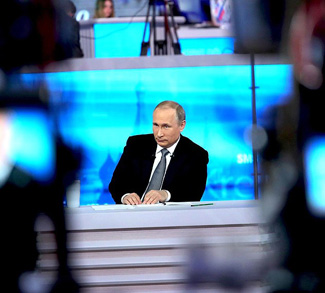While the Western world scrambles to respond to Russia’s invasion of Crimea, China has remained largely silent. This is because Russian aggression puts China in an awkward position: to support President Putin’s Crimean gamble risks severely damaging Chinese claims of respecting state sovereignty. But to denounce it on the other hand means standing against the closest thing China has to an ally.
Official statements from Beijing offer at least token support to Russia, stating that Russian intervention on behalf of its national interests is acceptable. Following a meeting with his Chinese counterpart Wang Yi, Russian Foreign Minister Sergei Lavrov declared that Beijing and Moscow share a “convergence of views” on Ukraine. This type of diplomatic double-speak suggests that though the two may broadly agree, there may also be considerable differences. This is reinforced by Chinese Foreign Ministry spokesman Qin Gang’s statement that “China upholds its own democratic principles and the basic codes for international relations.” Chief among these divergences is China’s longstanding opposition to outside interference in the affairs of a sovereign state.
An ideal scenario for the West would see China act as a strategic partner to pressure Russia. There are reasons to be hopeful – China has vested interests in Ukraine, particularly $3 billion in agricultural loans. Siding with the new Ukrainian government would help ensure they remain safe. Much has also been made of the so-called Beijing-Moscow axis of authoritarian states, but there remain deep fissures in their bilateral ties, namely energy competition in Central Asia. China also has no appetite for any long-term violation of state sovereignty, even when carried out by an ostensible ally. Such a situation undoubtedly unnerves Beijing, which continues to grapple with its own myriad of internal issues. A UN Security Council resolution condemning Russian aggression would benefit greatly from even a Chinese abstention. Though such a resolution would inevitably be vetoed by Russia, an abstention from Beijing would reaffirm China’s adherence to this principle without spitting directly in Moscow’s face.
Precedents do exist for China to remain mum. During the 2008 South Ossetia war, in which Russia and Georgia came to blows over similar issues, China sat on the sidelines and called for both sides to exercise restraint. International conditions have of course changed since 2008, when China was basking in the limelight of the Beijing Olympics and still enjoyed cordial relations with its neighbours. What has not changed, however, is China’s fundamental opposition to violations of state sovereignty. Even if Beijing is willing to bend this principle in favour of power politics, as it has started to in this case, state sanctity remains a fundamental tenet of Chinese foreign policy.
However, it is looking more likely that China will revert to form and offer at least tacit support to Russia. This will have deep reverberations beyond Europe, as Putin’s aggression in Ukraine could also embolden hardline elements within China’s military establishment. A serious confrontation between NATO and Russia could force Washington to indefinitely postpone the pivot to Asia, much to the consternation of certain US allies. This could push China to become even more assertive in its maritime claims in the South and East China Seas, significantly ratcheting up regional tensions.
Chinese support for Russia could also backfire down the road. Russian fears of China – namely the paranoia of Chinese expansionism into the lightly-populated Russian Far East – are deep-seated. If Beijing sets a precedent by favoring geostrategic ambition over non-intervention, it would be more difficult for Russia to discount Chinese designs on its far eastern territories. This factor could help pressure Putin to the negotiating table. Furthermore, punitive economic actions taken against Russia by the West will likely only increase Moscow’s dependence on its eastern neighbour. For decades, the distribution of power between the two has been reversing in Beijing’s favour. Chinese leaders are sure to welcome Russian dependence as it only hastens this trend.
China, though not as immediately involved in the Ukraine crisis as other actors, could still play a key role. Russia’s intervention in Crimea presents Chinese leaders with an awkward dilemma: solidarity with Putin comes with a glaring example of hypocrisy in China’s attitudes toward state sovereignty. However, the possibility of China lining up with the West is looking increasingly remote. Fissures remain in Sino-Russian relations, but it looks as though Beijing is content to side with Russia for now.




